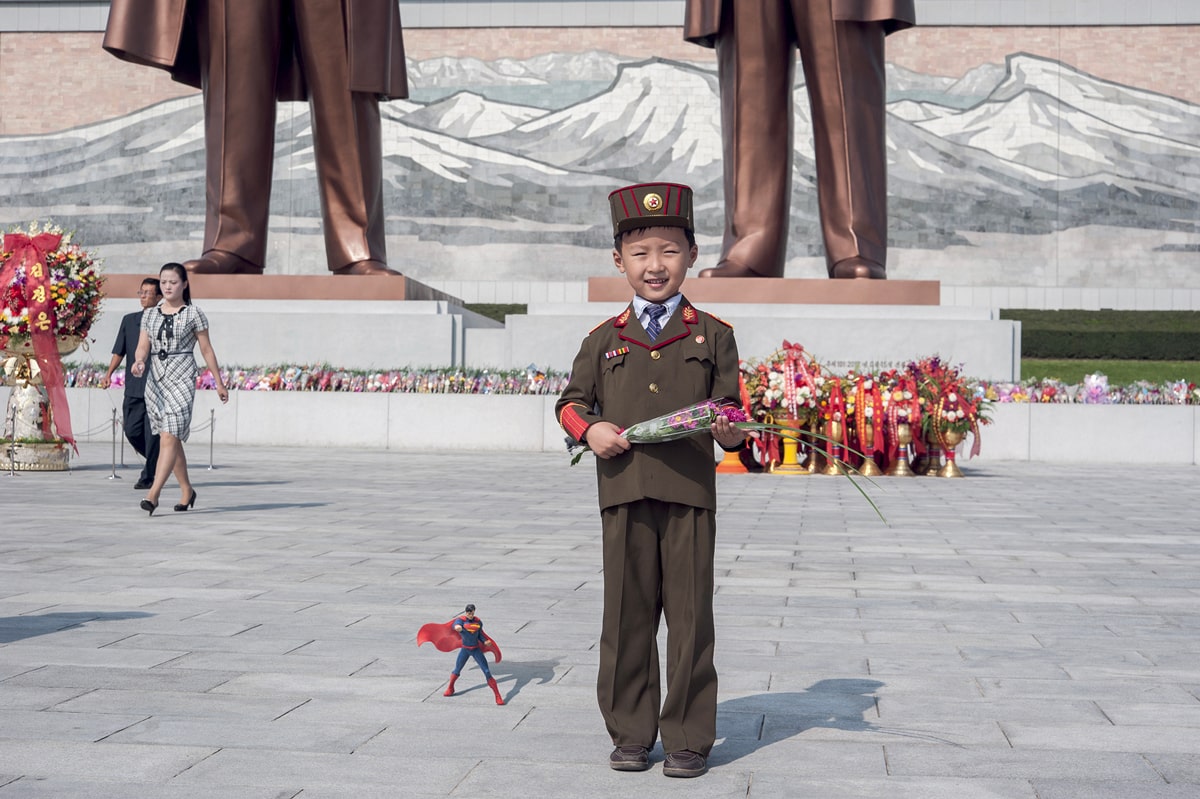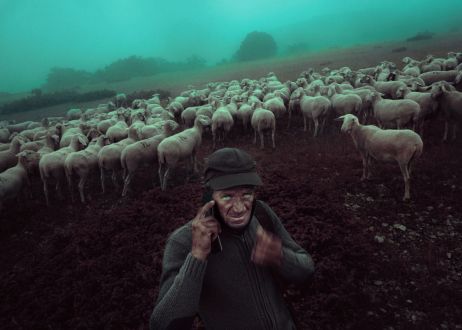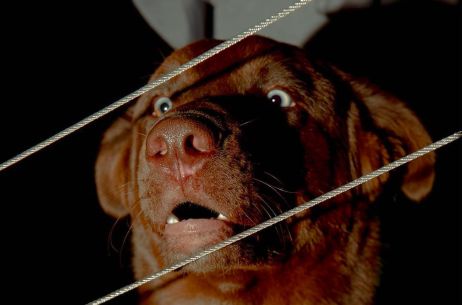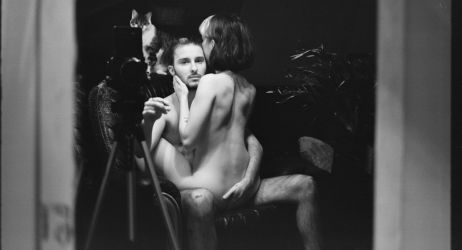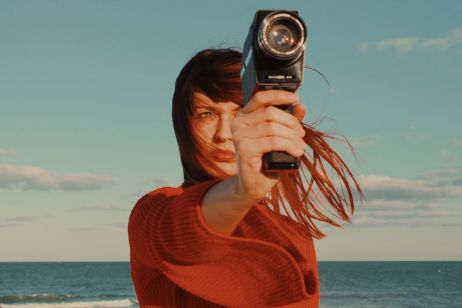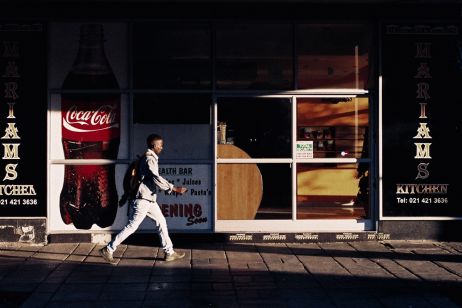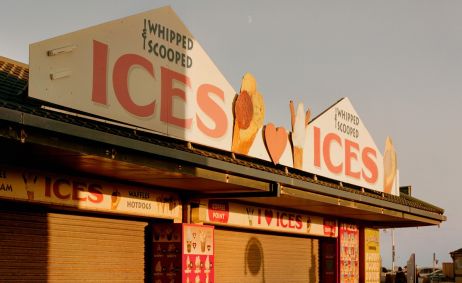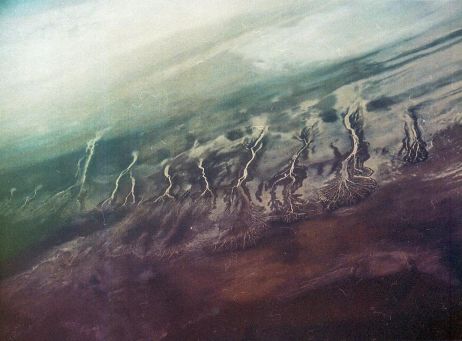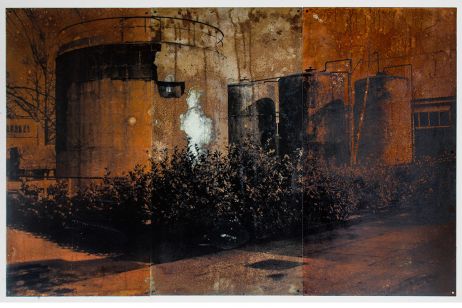Immersion in the absurd with Didier Bizet. The French photographer brings back from his stay in North Korea truncated images sprinkled with references. A humorous vision of the world’s most secret country. Interview.
Fisheye : How did you prepare your trip?
Didier Bizet : My trip wasn’t prepared. Organising a trip to North Korea requires a minimum of attention from the authorities. The visits were expected and are part of the routine tours that every tourist is happy to go on in the country of Kims.
How would you describe your book Le grand mensonge (The Great Lie)? Is it a collection of falsified memories or the story of a generalised staging?
Le grand mensonge is above all a denunciation of the North Korean system treated in an ironic way. It is therefore the story of a generalised staging. The falsification of images is a habit within communist and fascist regimes. In 1917, Lenin used this technique to make antagonistic characters disappear from society. Logic would dictate that I should use this technique to address the lies in North Korea.
Where did you get this idea to create your own truth about this country – which is full of lies – and to tamper with your images?
Apart from a few who work around portraiture, all the photographers who have stayed in North Korea produce the same images. The background is identical: the information that is delivered to Western readers or visitors is non-existent. We don’t know the North Koreans better, nor what they think. It is complicated to approach an inhabitant of Pyongyang. Then what shall we do with these images whose captions reveal only a rudimentary description?
Documenting North Korea objectively is a perilous exercise. Only North Koreans who have fled the regime in the South can reveal their own truth, later published by foreign journalists. To get answers to this question, I had to ask myself about the very nature of my images. What do they tell? What do they show? Do they tell us anything? The only information we have comes from rumours, passed on by the press.
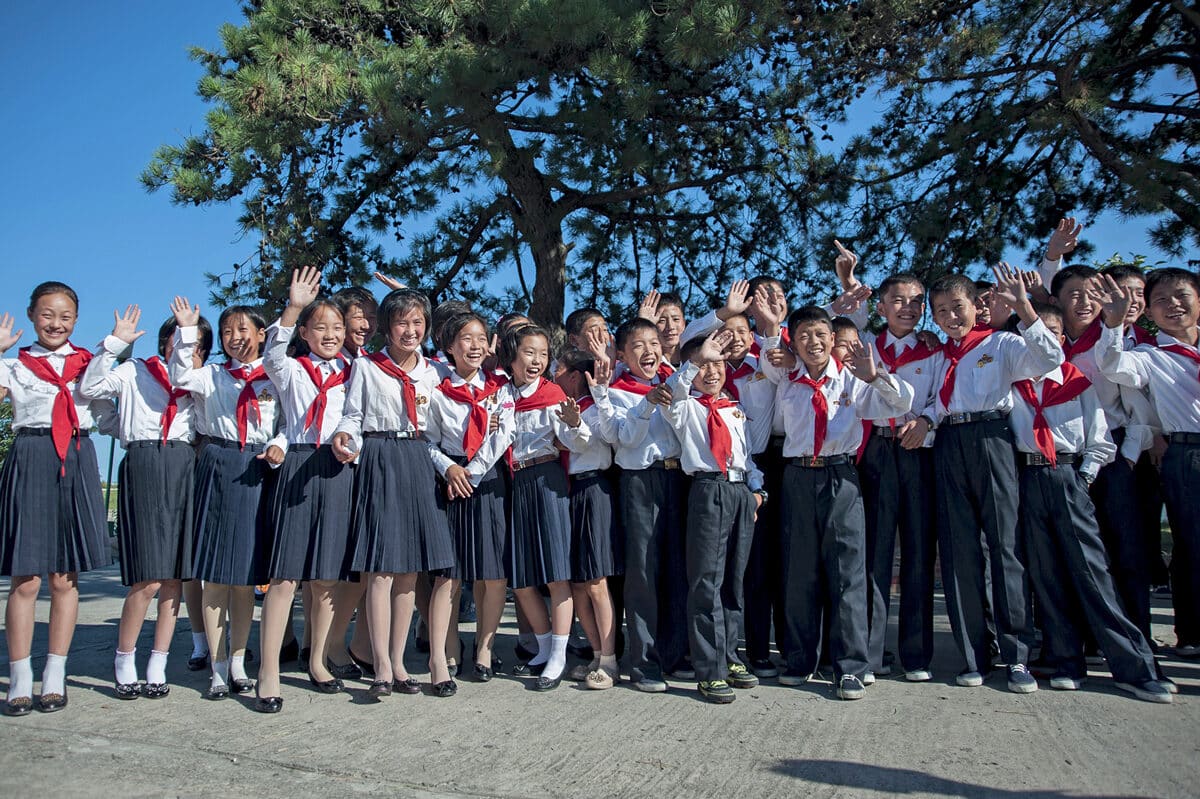
How did you process your images, which are full of references?
I went through my thousands of images and tried to elucidate a story to tell in each one. Once the “little stories” had been imagined, I had to find a possible truth to associate them. In this quest for idea-montages, I worked from rumours. References are obligatory, they characterise the advancement of the country’s freedoms, and situate it in its economic progress.
What do you want to induce in the reader?
I invite the reader to ask the right questions about North Korea. My other intention was to make people smile, while at the same time giving an account of the absurdities conveyed by this false society.
I also wanted the reader to get lost in the pages like in “Where’s Waldo?” and to discover the enigmas hidden in the scenes. When you travel in this country, you ask yourself a lot of questions, and no matter how hard you look, you can’t find any answers. It is finally a photographic ballad in the manner of “Plonk & Replonk” (a collective of publishers from La Chaux-de-Fonds, specialised in photomontages and misappropriations of Belle Époque postcards, ed.) which leaves the doubtful reader in a disciplined, obedient and absurd world.
What relationship do North Koreans have with photography?
Good question, no idea! The iconography that manifests itself through propaganda images is omnipresent in the city as well as in the countryside. Propaganda artists are trained at the fine art school. As for photography, only portraits of deceased leaders are allowed. They are required to be hung in appartments, institutions, and the party newspaper, which leaves little room for news – or rather propaganda!
A word about the Revelatœr publishing house? Was it essential for you to publish this work in a publishing house you founded? Is this a way to have more liberty?
The first two books Le grand mensonge and Cyril Abad’s In God we trust were coedited with the publisher Pyramid. It was an opportunity to start this publishing house with two offbeat titles.
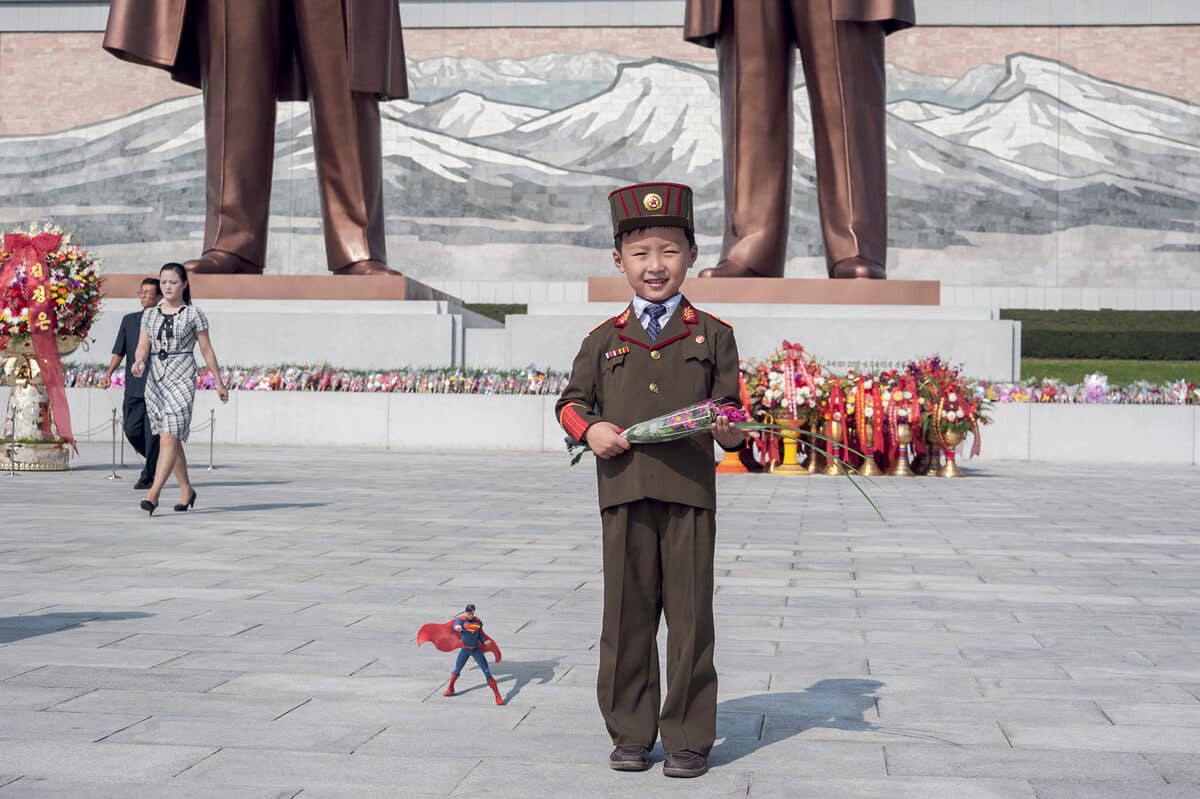
You left for Korea in 2012, your book was published in 2020, what explains this delay?
This book on North Korea is the result of a third mock-up that I am undertaking. The first two attempts failed, it is difficult to renew the North Korean theme. This explains the delay.
Even though we know the country’s regime and its practices, what shocked you the most? And what was the most surreal moment you experienced?
No, we fundamentally don’t know what’s in store for us. This country is an enigma – whether it is seen from the outside or from the inside. The regime doesn’t show anything inappropriate or unpleasant. On the contrary, a visit to the country is a perfect, well-oiled propaganda, which has undoubtedly convinced more than one tourist. My memory will undoubtedly remain the “Arirang Mass Games”: they are shows given in the world’s largest stadium by thousands of gymnasts.
On site, you were accompanied by two guides, what do you remember from your interactions? Were you able to get information from them?
My guides were very welcoming. There was a shy student with a very good level of French. And then there was a man with impeccable French who already had experience in Africa on North Korean building sites. Contrary to the young girl who was disarmingly naive, the guide had known the West, and thus knew how to discern the discordance between our capitalist societies and North Korea. You should know that a Western tourist in North Korea is a loser, a liar, a capitalist, and is considered a detractor. But he will always be welcome!
Has anyone seen your book in North Korea? Are you blacklisted now?
No. I have no idea if my name is blacklisted. But it is likely that it is. I probably won’t be able to work on the country again in the medium/long term. And that is not without regret.
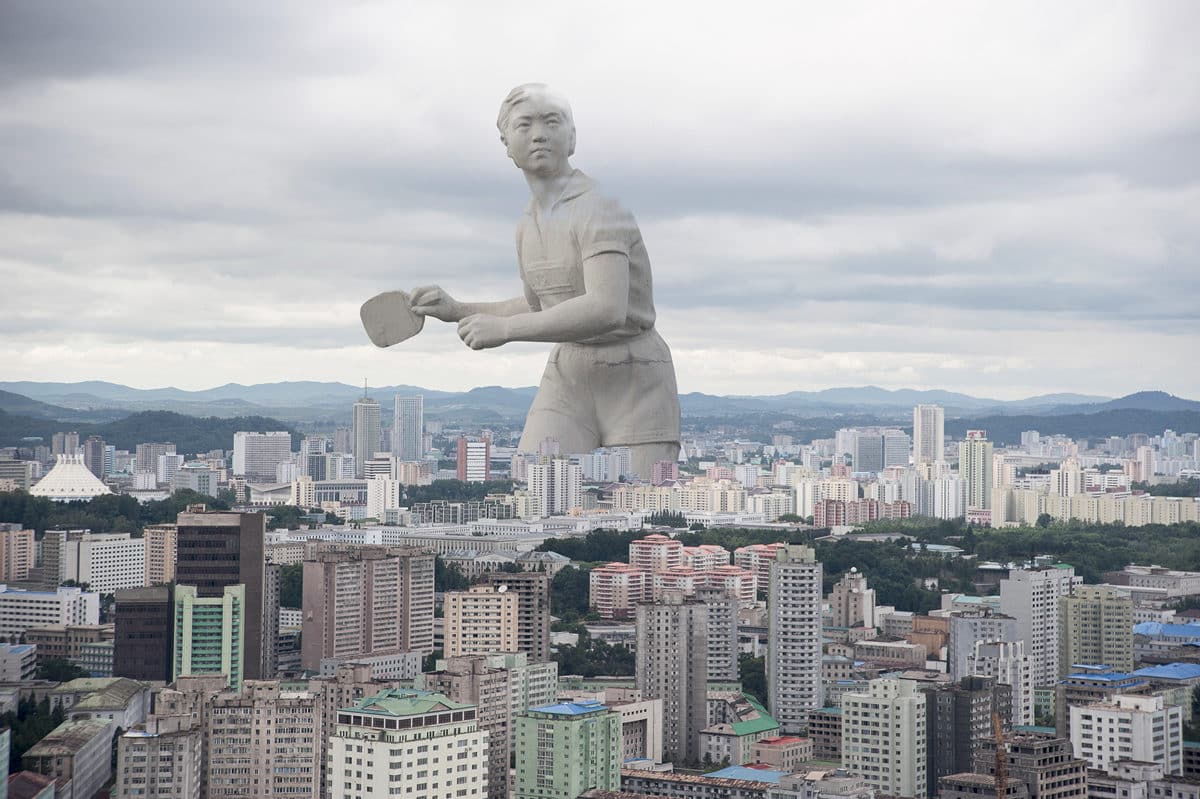
How does it feel after spending 15 days in this den of lies?
All in all, the trip was nice. It is a splendid country with very green valleys. The same kind of landscapes that we can find in Vietman. Before, during and after a stay in the land of Kims, it is impossible to get to a truth about the country.
From the outside, what is your feeling about the evolution of the country? What do you remember about North Korea eight years later?
The country has of course been modernised with its Chinese partner and neighbour. Technology in the world is no longer reserved for the elite countries. North Korea is now one of the most formidable countries in terms of cyber attacks. In recent years, a group of North Korean hackers – the APT38 – is said to be behind a series of cyber attacks targeting several international banks. The objective? To steal around a billion dollars for Pyongyang. According to a report recently broadcast on the BBC, the Pyongyang regime is capable of producing and selling weapons (tanks, missiles) to whoever wants them and is also a leader on the synthetic drug market.
A word about the title and choice of cover image?
I chose the title Le grand mensonge, but I could very well have named this work Le peuple est mon Dieu (The People Are My God, ed.). It was during the reign of Kim Jong-il (Kim Il-sung’s son) that the country, in order to survive, embarked on a strategy of phantasmagorical lies. A teenager chewing gum is a naturally complacent provocation.
The most absurd photograph?
One of the most absurd is undoubtedly the inflatable doll hidden at the entrance of the Pyongyang aquarium. According to Amnesty International, a North Korean man who watched a pornographic video with his wife and another woman was executed. The entire city was reportedly forced to watch the execution. This rumour is totally laughable, and unfortunately, it may turn out to be true. Sex is a hot topic for young North Koreans, I had an obligation to raise it in some way.
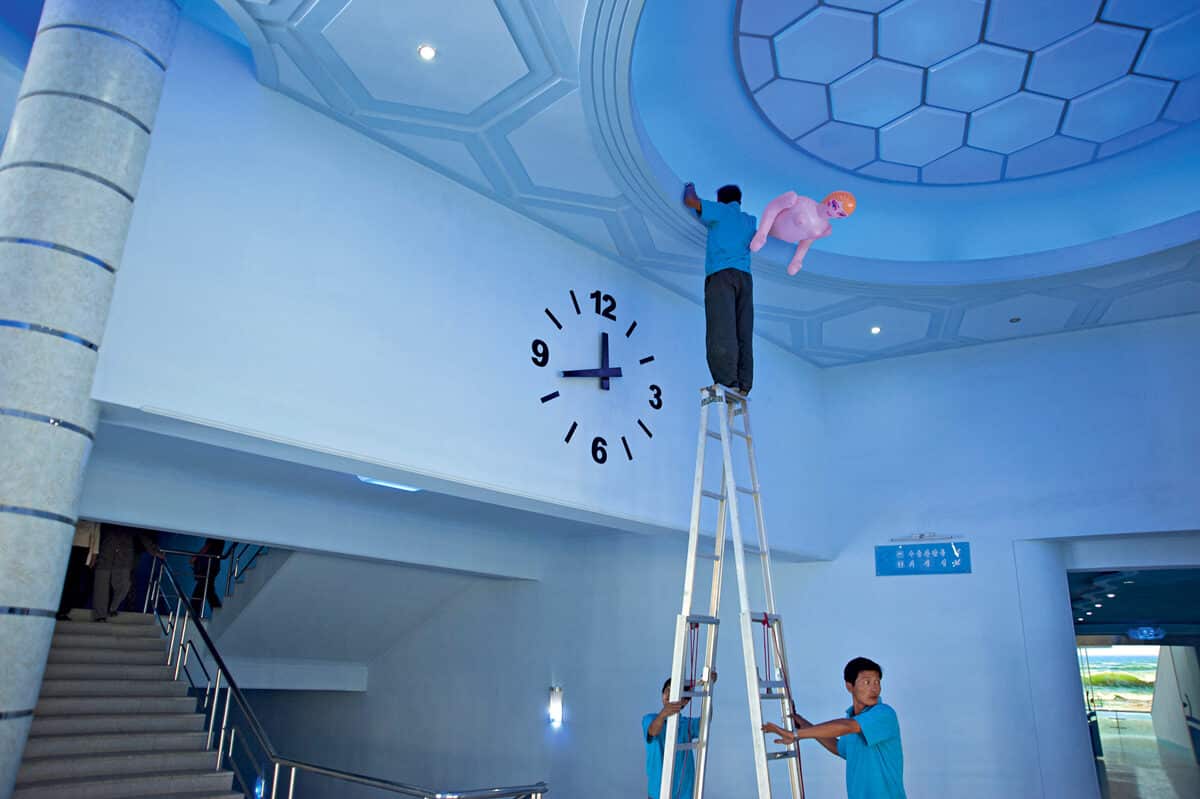
And your favourite photograph? Why?
One of my favourite photos shows a North Korean woman from behind, in front of a merry-go-round. She looks lonely and seems tormented. The situation of women in North Korea is very critical. In 2018, Human Rights Watch stated in a report based on refugee testimonies that women in North Korea can be sexually abused by police or other state officials with impunity. From reading the report, it was clear to me that the reference to The Handmaid’s Tale was indisputable. I added a white headdress and coloured her traditional dress in red.
In one of your images is hidden a raised middle finger. Is that your message: a fuck you to propaganda and to this country made of ultimate constraints?
North Koreans are unable to express any opinion on their conditions, the youth are forced to grow up in a dictatorial system from an early age. They are trained in ways that will accompany them until adulthood. To face power is a meaningless act of rebellion in North Korea. A raised finger is just a visual joke that no North Korean would dare to imagine. Yes, it is a “fuck you” to dictatorship, a “no” to order, a “no” to authority and absolutism. And a big “yes” to the freedom of North Korean youth!
Three words to describe North Korea?
Kim, Kim, Kim.
Le grand mensonge, Révélatœr x Pyramyd Publishing houses, 25€, 176p.
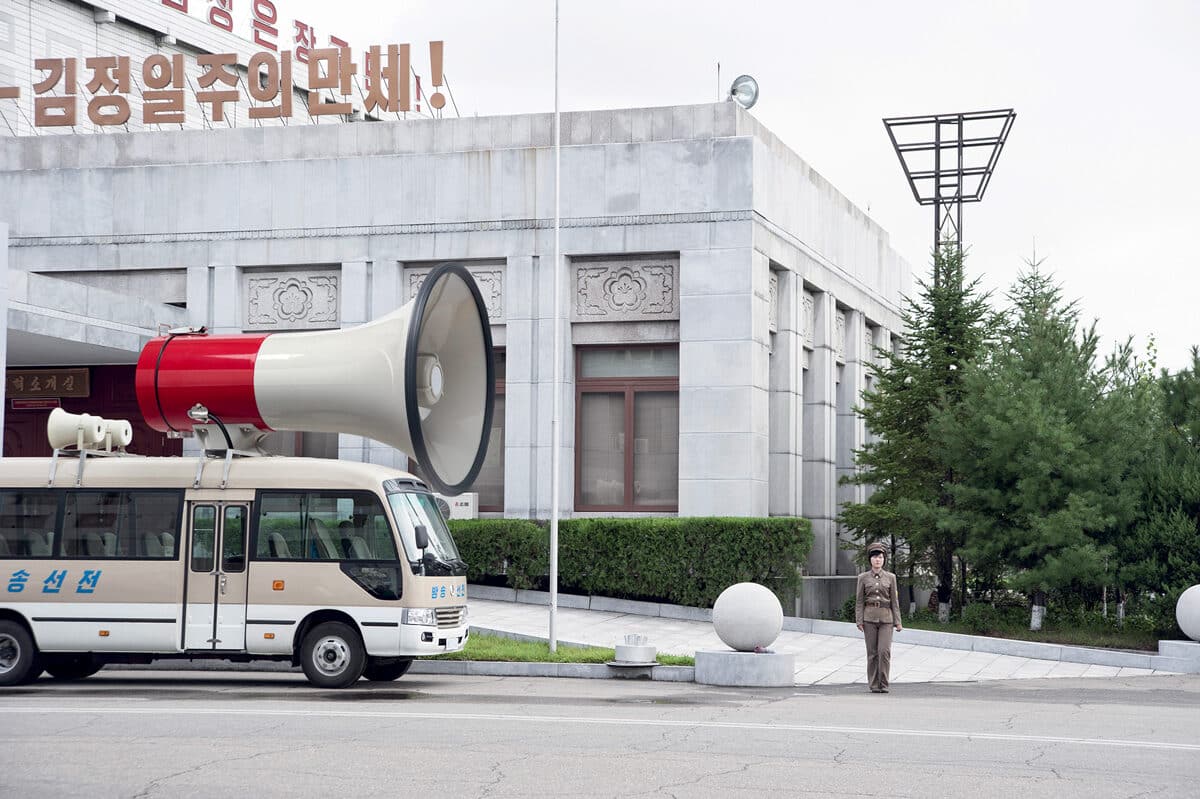
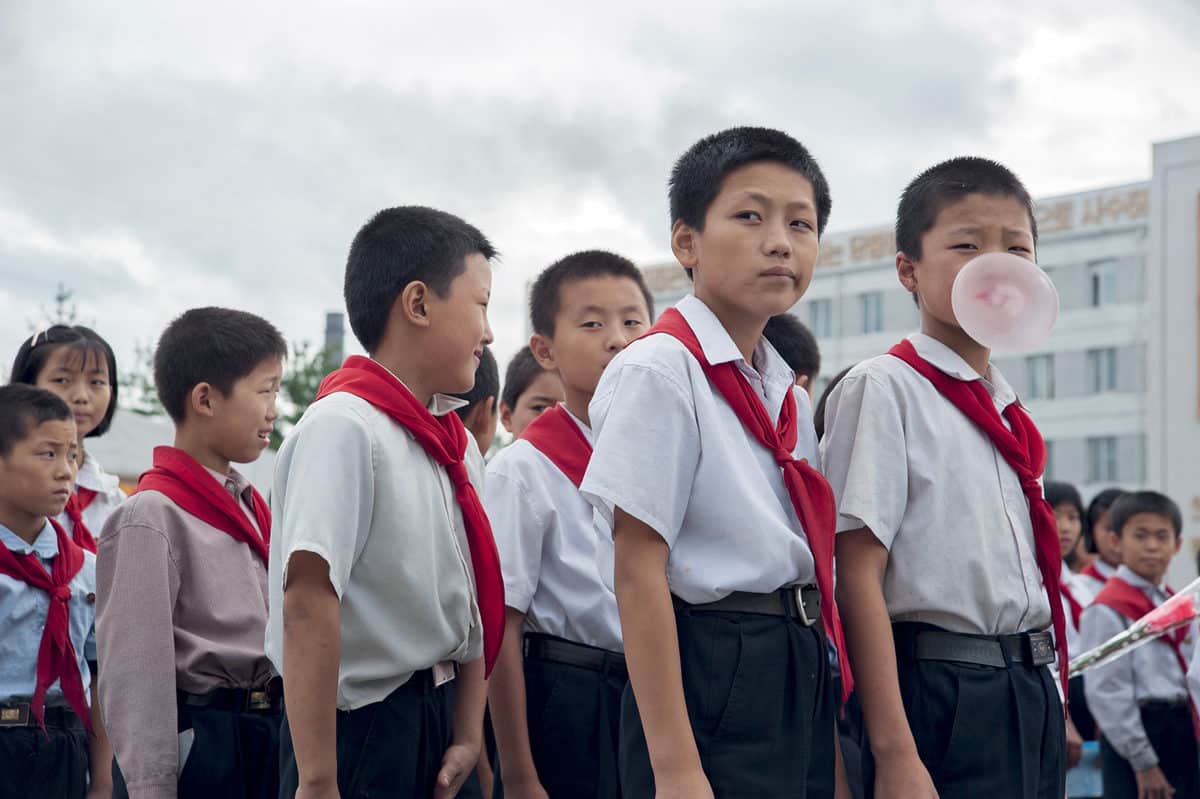
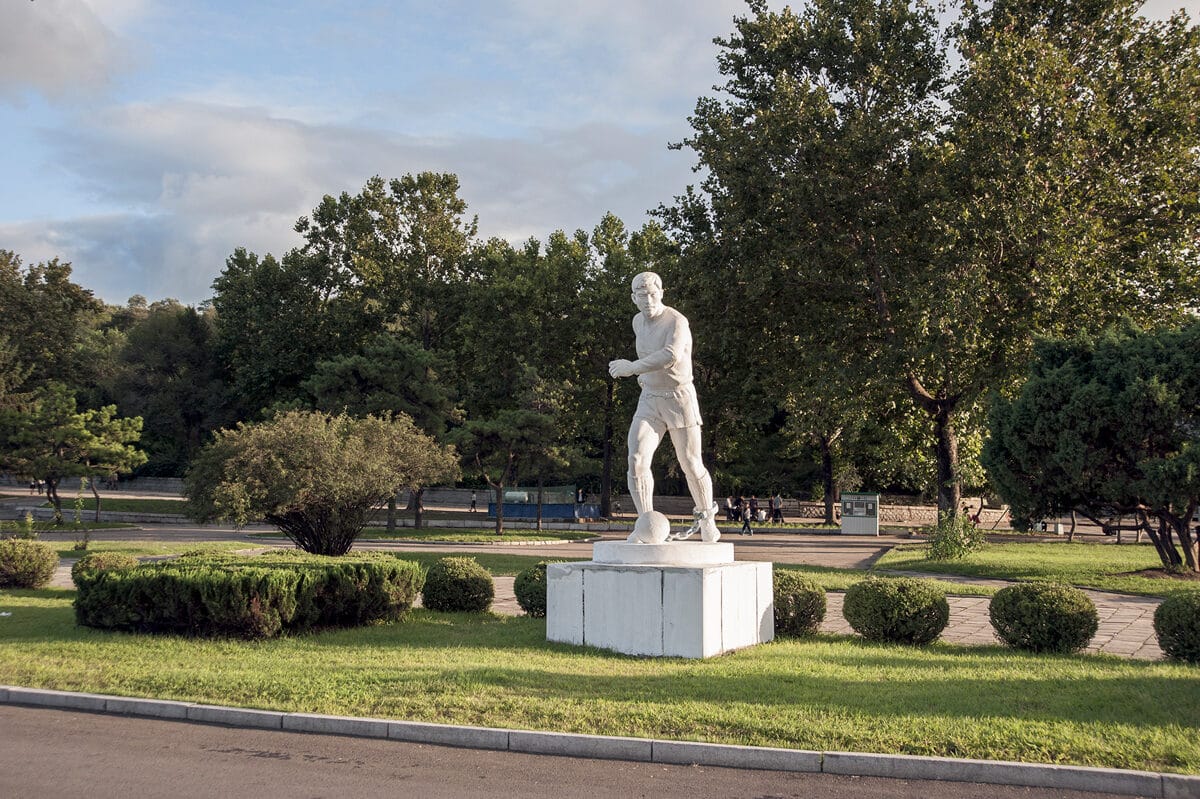
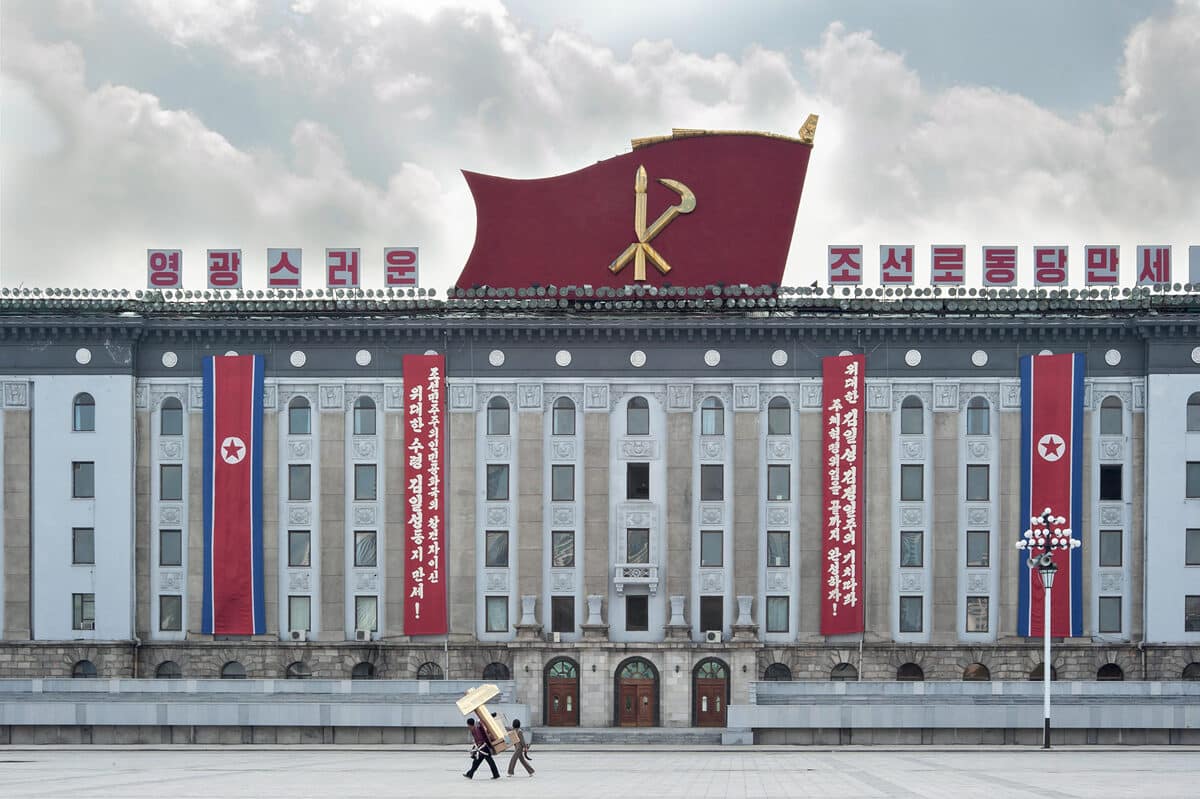
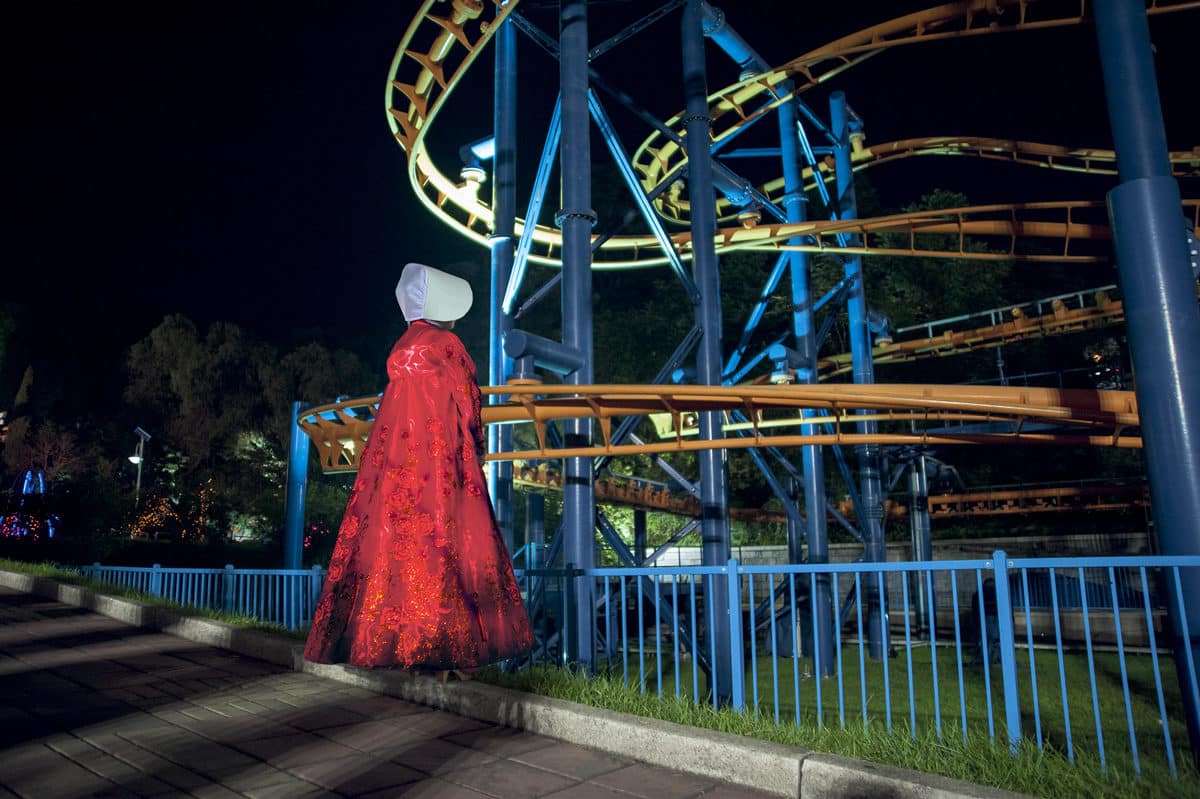
Le grand mensonge © Didier Bizet
